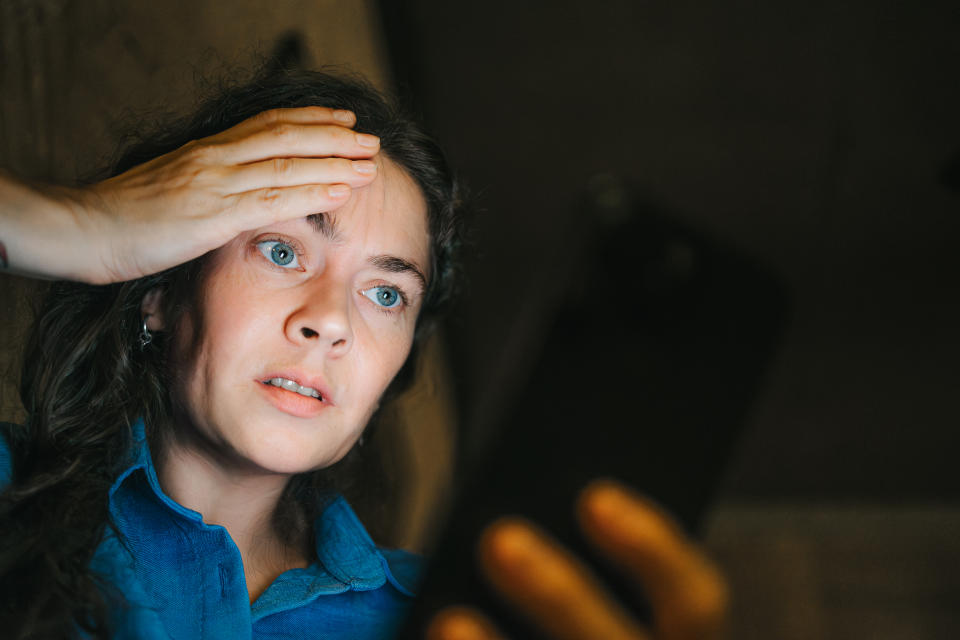Big political events can be a time of stress and anxiety for many people, especially when the outcome can impact the lives of millions.
The world is watching as US citizens prepare to elect a new president on Tuesday 5 November. Tensions between the Democrats – who are rooting for Kamala Harris – and the Republicans, who are throwing their hats behind former president Donald Trump, are rising by the minute.
Some experts are warning that the results could take several days. In 2020, president Joe Biden was not declared the winner for nearly four days as recounts of the votes took place in some US states.
As the US election is of global interest, there is also the wall-to-wall coverage to contend with. Many people may find it difficult to cope with the seemingly endless media reporting of the event, which can heighten feelings of stress and anxiety.
Dr Sheethai Rajashanker, consultant psychiatrist at Priory Hospital Cheadle Royal in Cheshire, tells Yahoo UK: “It is normal for individuals to experience anxiety, stress, and worry about the outcome of an election, particularly when it involves important issues that directly impact their lives – something increasingly referred to as ‘election stress disorder’.
“While it is important to acknowledge and validate these feelings as they are a natural response to the current political climate, it essential people take simple steps to manage and cope with their stresses and anxieties at this time as it can have a significant impact on their mental health.”
Here are three tips for dealing with election-related anxiety:
As difficult as it may be to switch the television off or scroll past the social media post, doing so can really help you feel less anxious.
Dr Rajashanker recommends setting limits for social media usage, allocating certain amounts of time each day to check social media, and unfollowing or muting political accounts.
She also suggests seeking out reputable news sources, as well as non-partisan outlets and websites when you do want to check the news.
“This will help reduce election-related content and ensure there is some balance to the sources of information.”
Take time away from screens
“We can never underestimate the positive impact of exercise, reading, mindfulness and deep breathing techniques as ways to de-stress and refresh the mind, so these are all must dos alongside other hobbies people find take their mind off of negative news and debate,” Dr Rajashanker says.
“It is also important to talk to friends and family about anxieties and, where they are increased by political discussion, ask that they respect differing views or avoid political discussion if it is causing distress.”
Prioritise your mental health
Remember that you don’t have to stay on top of the news every second of the day, especially if it is negatively impacting your ability to carry out daily functions or your mental health.
Dr Rajashanker encourages people who feel that election stress is having a significant effect on their health to seek help and prioritise their mental wellbeing.
Watch: Feeling stressed about the election? You’re not alone
Read more about mental health:
EMEA Tribune is not involved in this news article, it is taken from our partners and or from the News Agencies. Copyright and Credit go to the News Agencies, email news@emeatribune.com Follow our WhatsApp verified Channel



